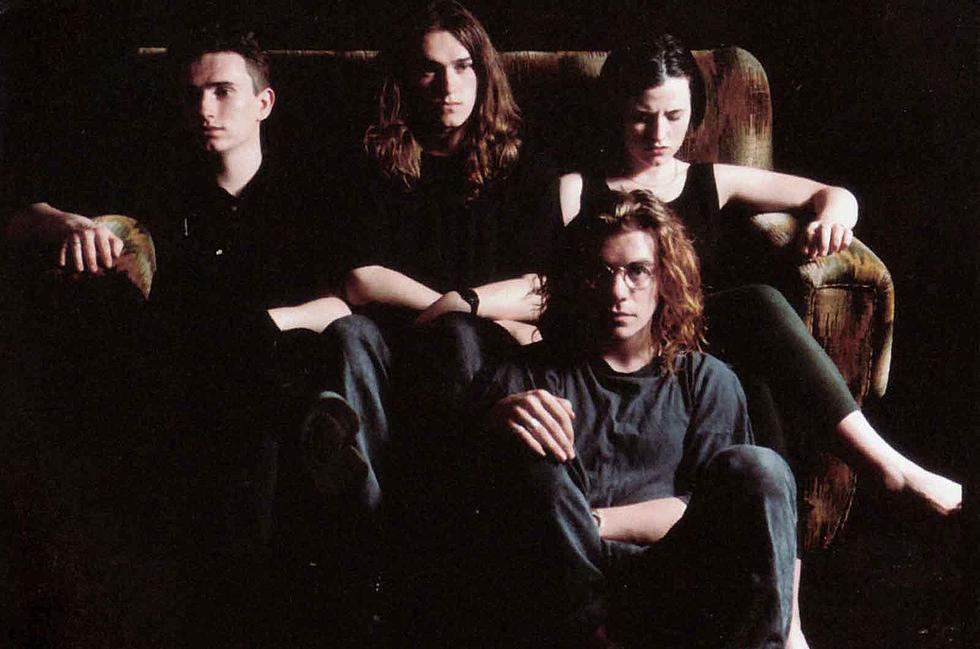
20 Years Ago: The Cranberries Release Their Third Album ‘To the Faithful Departed’
By early 1996, Irish rock outfit the Cranberries were two albums into an international career. Their 1993 debut, Everybody Else Is Doing It, So Why Can't We?, and the '90s radio staple "Linger" introduced Dolores O'Riordan and the boys to the mainstream. In 1994, their follow-up, No Need to Argue, and hit "Zombie," introduced them to the world.
Together, those two albums sold millions of copies, making the Cranberries one of the best-selling alternative acts of the '90s. Expectations were understandably running exceptionally high for album No. 3.
For their previous two albums, the band had worked with producer Steven Street. Street had worked with everyone from the Smiths to Blur and had a reputation for bringing out the best of each band's sound. But with the international stakes so high, the Cranberries (or possibly Island Records) enlisted mega-producer Bruce Fairbairn for their 1996 effort, To the Faithful Departed. Fairbairn had a resume filled with blockbusters including Bon Jovi's Slippery When Wet and albums by Aerosmith, AC/DC and KISS. Dropping names that are that heavy can destroy a cement floor, but those arena rockers all wield far more accessible sounds than the Cranberries' idiosyncratic one.
The change in producers wasn't the only change this time around. At least half of the songs on the band's previous two albums had been co-written by singer Dolores O'Riordan and guitarist Noel Hogan. That percentage dropped to about a quarter for Faithful, with Hogan contributing to only four of the songs on the album. There were personal changes, too: O'Riordan's grandfather died, as did producer Denny Cordell – who was instrumental in the band's move to major label Island Records.
For all the change, though, some things remained steadfastly the same. Album opener "Hollywood" sounds like a remake of "Zombie," with its soft-loud dynamics, O'Riordan's chants and dirge tempo. The pseudo-doo wop of "When You're Gone" maintained the band's playful romanticism, as did the lush acoustic washes of "The Rebels."
But the album features moments of interesting (if not self-indulgent) experimentation. "Will You Remember" has an odd auxiliary percussion intro and "Forever Yellow Skies" finds the Cranberries painting with the same sonic brushstrokes as early U2.
There are less than stellar moments, too. The lead single, "Salvation," released just three weeks prior to the album, wallows in Fairbairn's signature horns and an '80s boom-boom-bap beat that sounded dated even back in '96. In retrospect, it might not have been the best choice for an introductory single, but the track still managed to crack the Top 40.
What threatens to pull the album under, however, is the weight of O'Riordan's more earnest songs. They include the sound of actual gunshots in "I Just Shot Lennon" and the well-intended "War Child" and "Bosnia" come across as pedantic at best.
Overall, the album didn't fare as well as its predecessors, selling "only" 6 million copies worldwide. It's pretty telling that only two decades ago, a multi-platinum album could still be considered a disappointment.
The Cranberries managed to release two more albums before parting ways in 2003. Four years later, O'Riordan released a solo album and guitarist Hogan's new group, Mono Band, released a self-titled album in 2005. Hogan and drummer Fergal Lawler also went on to produce albums for other bands. But the Cranberries reunited in 2009 and released an album of new material, Roses, two years later. Whether we'll see more new material is unclear, and the band's website is nothing more than a "coming soon" placeholder. Their Facebook remains active, though somewhat out of date, noting that the band will be on tour in 2012.
But all hope is not lost for Cranberries fans. O'Riordan is still making new music with D.A.R.K., the band she formed in 2009 with former Smiths bassist Andy Rourke. And that band's debut full-length is slated to drop next month.
More From Diffuser.fm









